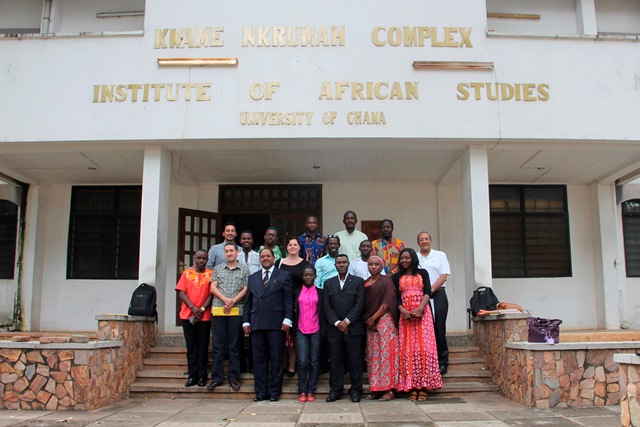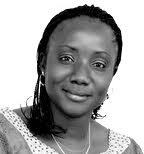Perspectives on IARJ in Africa: Elisa Di Benedetto

Awareness, commitment, knowledge. Despite the challenging variety of faiths and religious traditions and the diverse circumstances in which religion reporting is conducted, a common thread unites religion journalists in Africa: their willingness to work together towards fair and accurate coverage of religion, though training and networking.
While working with the organizing committee to prepare the IARJ conference Reporting on Religion and Spirituality in Africa,
I was immediately struck by the extremely diverse variety of faiths, culture and religions that characterizes Africa, as well as the variety of approaches to covering religion and spirituality. I was fascinated to hear my African colleagues discuss the challenges they face in a continent where major religions coexist with local religious traditions, touching many aspects of life and political action in myriad ways.
And diversity was what made the IARJ Conference in Ghana a unique opportunity for growth—not only for journalists covering religion—but also for the IARJ and its commitment to enhancing quality in reporting on religion. The conference benefited from the variety of perspectives and experiences brought up by journalists of different faiths and backgrounds—and we especially benefited from the contribution of women journalists.

One of those is Odinga Nuhu Adiwu, a Nigerian journalist. She writes:
It was an honor to have participated in the conference. It was a learning and sharing process for me and has better prepared me for the challenges and realities in our world today. Our diversities are a major tool to win this challenge on reporting on religion and spirituality in Africa.
The enriching discussions, which involved colleagues sharing their own experiences, helped me to get a better understanding of journalism and religion in Africa, without filters through the lens of Western politics and interests.
I was particularly intrigued by discussions on questions such as: What does it mean to cover terrorism in such countries as Nigeria? How should we report on state and religion in countries where the relationship is often very controversial? Can journalists shape public culture so that religion becomes a legitimate subject of conversation? And how can the IARJ help African journalists in their job?
I left Ghana freshly committed to the IARJ’s goals of fostering understanding through ethical and balanced religion coverage. I was impressed by conversations about journalists and scholars working together more closely, perhaps through projects like Damien Atsoutse Tossou’s Afrique et réligions, aimed at offering data and information on religions in Africa, with a sociological and juridical perspective.
Despite the many faiths and religious traditions, there is something that unites African journalists covering religion: They consider journalism to be a vocation, a life’s calling, as Nigerian freelance journalist Odinga Nuhu Adiwu said, encouraging her colleagues by reminding them that from her perspective, This is a calling. We are called to be the voice for the voiceless.
Care to learn more?
Please follow the IARJ on Twitter and Facebook. Also, encourage friends to follow our Twitter feed, which provides fascinating news from around the world in several languages. The IARJ Twitter feed will give you a far more diverse window into the world’s religious and cultural diversity.
If you are a journalist covering religion, consider becoming a member of the IARJ.
